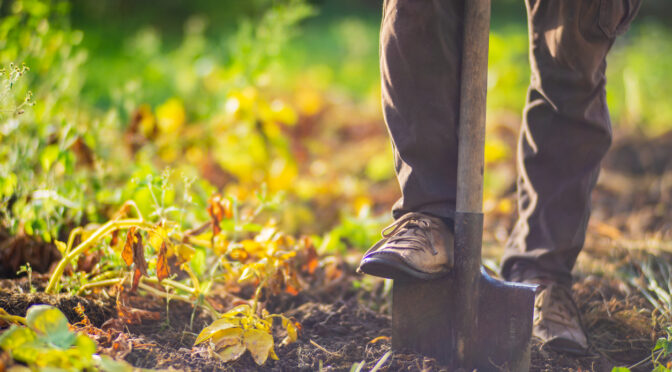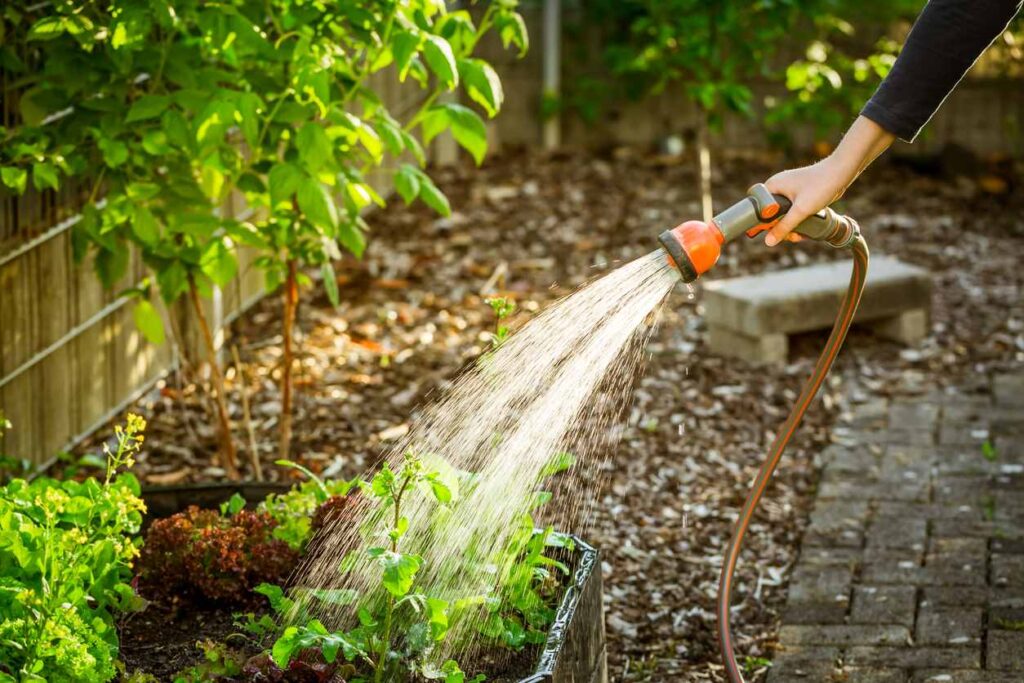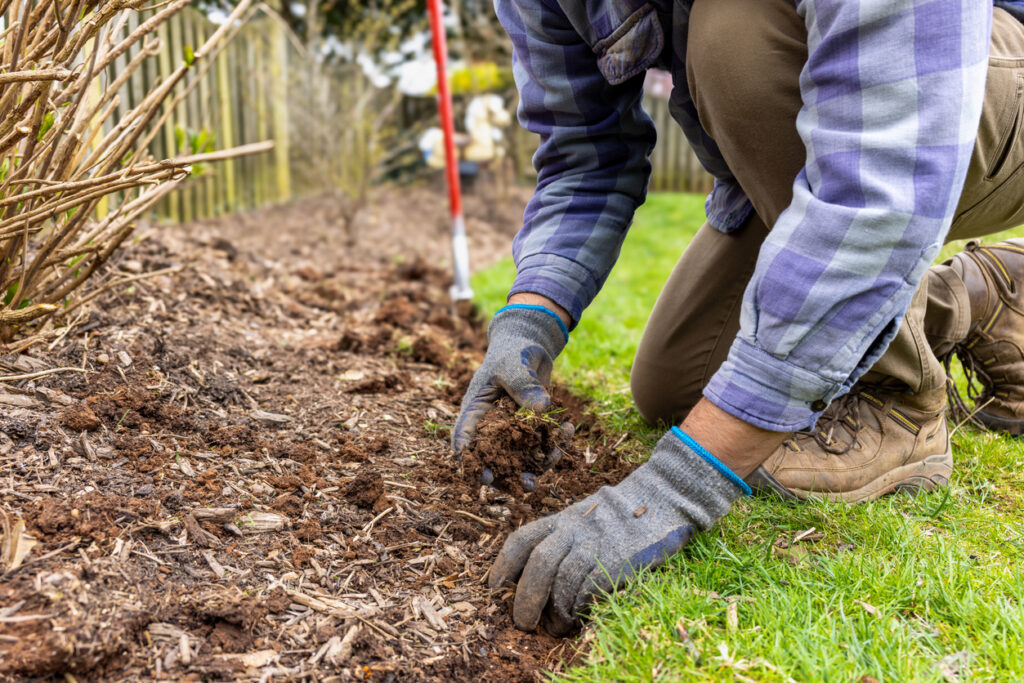
As the warmth of summer gives way to the cool, crisp days of autumn, it’s time to shift focus to fall garden maintenance. This season is crucial for ensuring your garden stays vibrant and healthy through the colder months. Our guide will take you through everything you need to know about preparing your garden for winter, from essential tools to tips on avoiding common pitfalls. Ready to keep your garden thriving as temperatures drop? Let’s dig in.
Essential Tools and Tips for Fall Garden Maintenance
To effectively care for your garden in the fall, you’ll need the right tools and strategies. Here are some essentials for seasonal garden maintenance.
Clean Up Your Garden
As the leaves fall and plants begin to wither, it’s time for a thorough garden cleanup. A rake is indispensable for gathering and removing fallen leaves, dead plants, and other debris. Not only does this keep your garden looking neat, but it also helps prevent pests and diseases from overwintering in the remnants. A clean garden is better prepared to face the cooler months and sets the stage for a healthier spring.
Prune and Trim
You can use tree trimmers and pruning shears to give your perennials a tidy trim and cut back any overgrown plants. These tools allow for precise cuts, ensuring your plants are well shaped and ready for winter. Be careful not to over-prune—some plants benefit from retaining their foliage throughout winter for added protection. Proper pruning keeps your garden healthy and ready for the colder season.
Add Mulch
A generous layer of mulch around your plants does wonders for insulation and moisture retention. Mulch acts as a protective barrier, shielding the soil from temperature fluctuations and preventing it from drying out too quickly. It also suppresses weed growth by blocking sunlight, giving your plants the space they need to thrive. Proper mulching not only protects your garden from the harsh conditions of fall and winter but also creates a low-maintenance environment that benefits your plants well into the next growing season.
Prepare Your Soil
Autumn is the perfect time to enrich your garden soil by adding compost or organic matter such as aged manure, leaf mold, or grass clippings. As the growing season winds down, soil can become depleted of essential nutrients. By incorporating these organic materials, you improve soil structure, enhance moisture retention, and provide a nutrient-rich foundation that will support your plants through winter and give them a strong start in spring.

Autumn Garden Care: Keeping Your Plants Happy
As the temperatures drop and days grow shorter, your garden enters a period of transition. This time of year requires special care to ensure your plants remain healthy and resilient through the fall and into winter. Autumn garden care is all about providing the right conditions to help your plants survive—and even thrive—during this critical season.
Here’s how to help your plants transition smoothly into winter.
Watering
Even as the cool autumn air settles in, consistent watering remains vital for seasonal garden maintenance, especially during dry spells. Your plants rely on regular moisture to maintain health and prepare for winter, particularly new plantings and young trees, which are still establishing their root systems. Adequate moisture helps these plants develop strong roots that anchor them securely through winter.
Fertilize
As the growing season winds down, nourish your plants as they prepare for the cold months ahead. A slow-release fertilizer provides ongoing nourishment throughout the fall, breaking down gradually to give your plants a steady supply of nutrients. Focus on fertilizers that support root growth, which is crucial during this time of year, as strong roots help your plants store energy and withstand winter’s challenges.
Plant Fall Crops
Fall is the perfect time to plant cool-season vegetables like kale and spinach. These hardy greens thrive in cooler conditions, allowing you to extend your harvest well into the season. Kale and spinach are especially resilient, continuing to grow even as fall turns to winter. By planting these crops, you ensure a steady supply of fresh produce when many other plants are winding down.
Preparing Your Garden for Winter
Winter brings its own challenges, with freezing temperatures, harsh winds, and frost posing significant threats to your garden. Proper preparation can help protect your plants and soil, ensuring they not only survive but also flourish when spring returns.
Protect Sensitive Plants
Sensitive plants need extra protection to endure winter’s harsh conditions. Covering them with burlap or frost blankets shields them from freezing temperatures, biting winds, and heavy frost. These coverings help maintain a consistent temperature around your plants and prevent damage from ice accumulation or heavy snow.
Wrap Trees and Shrubs
Young trees and shrubs are particularly vulnerable to winter burn, which is caused by the drying effects of cold winds and freezing temperatures. Wrapping them with burlap or other protective materials creates a barrier that helps retain moisture and reduces the risk of damage. This simple yet effective measure keeps your young plants healthy and resilient, ready to prosper when warmer weather returns.
Test and Amend Soil
Fall is the ideal time to test your soil’s pH and make necessary adjustments. Soil pH affects nutrient availability and overall plant health, making it crucial to get it right before winter. Testing and adjusting your soil’s pH now sets the stage for healthier plants and better nutrient absorption in spring, ensuring your garden is ready to thrive when warmer weather returns.

Common Mistakes To Avoid During Fall Garden Maintenance
To ensure your garden is fully prepared for winter, here are some common pitfalls to avoid.
Neglecting to Water
Don’t assume cooler weather means your garden doesn’t need water. Consistent watering, particularly during dry periods, is crucial for keeping plants hydrated and healthy.
Skipping Mulch
Mulching isn’t just for summer. Skipping this step can expose your plants to harsh winter conditions, potentially leading to damage.
Over-Pruning
Pruning is important, but over-pruning can leave plants vulnerable to winter damage. Knowing which plants to trim back and which to leave untouched is essential for winter protection.
Seasonal Garden Maintenance: Embrace the Fall
Fall isn’t just about raking leaves—it’s your opportunity to set your garden up for success in the months to come. By tackling these essential tasks now, you’ll ensure your garden bursts back to life in the spring. And if you need a place to store your gardening tools and supplies over the winter, we’ve got you covered. Central Self Storage offers convenient storage units, perfect for keeping your equipment tucked away and accessible. So what are you waiting for? Contact us today to rent a storage unit and get ready for a flourishing garden next season! Don’t forget to check out our other blogs for more tips and insights.


